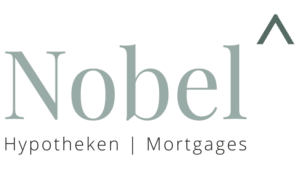What happens to an interest-only mortgage at the end of the term?
It sounds tremendously tempting, a grace-free mortgage. After all, it makes a significant difference in monthly costs compared to other mortgage types, and you can use that money for other fun things right now.
But, is an interest-only mortgage actually that beneficial? And what happens when the term ends and you don’t have enough money saved to pay off the entire amount? We have it all figured out for you and try to explain it as clearly as possible below.
First of all, it is important to know what types of mortgages there are and exactly what an annuity, linear and repayment-free mortgage means. That way you can clearly see the differences and weigh the pros and cons.
More about the annuity mortgage
With an annuity mortgage, your monthly expenses remain the same throughout the term as long as the interest rate does not change. The amount you pay each month is called the annuity. The annuity consists of principal and interest.
The amount of repayment and the interest amount change each month. In the beginning, you pay most of the interest and repay less. Toward the end of the term, you pay less interest and actually repay more. At the end of the term, your mortgage is paid off.
More about the linear mortgage
With a linear mortgage, your monthly expenses get lower over the term provided the interest rate remains the same. Your monthly expenses here consist of two parts namely repayment and interest. The monthly amount in terms of repayment remains the same.
You pay interest on the debt remaining after each repayment. So that keeps decreasing and the amount you pay in interest keeps decreasing.
Your monthly expenses are highest in the beginning and get progressively lower over the term. This is useful if you expect increasing expenses or less income in the future.
The linear mortgage is cheaper than the annuity mortgage if you look at the total term of the mortgage. You pay off the debt faster. As a result, you pay less mortgage interest over the total term. At the end of the term, your mortgage is paid off.
More about the grace-free mortgage
With an interest-only mortgage, during the term, you pay only an amount of interest per month and no repayment. As a result, your monthly expenses during the term are lower than with an annuity mortgage or linear mortgage.
At the end of the term, your mortgage is basically only paid off if you’ve set money aside yourself or paid it off in the interim.
Conclusion: So the annuity mortgage and linear mortgage are completely paid off at the end of the term. The grace-free variety does not.
So how exactly does redeeming work?
Basically, what it comes down to is that you have to start setting money aside yourself so that, for example, you can repay some of it at the end of the year. Some people have no problem with that, but others always make up what comes in in a month. So you have to have some discipline or expect an inheritance, for example, if you want to go for this option.
So an installment-free mortgage you pay back by making interim repayments at your convenience, but no later than the end of the term agreed with you. You do this with your own money. In this, you may repay a portion of the original mortgage amount each year without penalty. You can check with your mortgage broker to see exactly how much that is. Usually it is 10% to 20% of the total mortgage amount.
You can also choose to take out a new mortgage. Whether this is possible and to your advantage can be reviewed by one of Nobel Mortgages’ expert advisors.
Finally, you can pay off the mortgage by selling your home. But won’t this sale bring in enough to pay back the mortgage? Then, unfortunately, you are left with a debt. We also call this residual debt. So an interest-only mortgage also carries risks, which is why certain conditions apply before taking out.
So what are these conditions for taking out an installment-free mortgage?
You choose between a fixed rate period (up to 30 years) or variable rate. You only pay interest during the term, so your interest rate and gross monthly amount remain the same.
If you choose variable interest rates, your monthly amount may fluctuate. Together with an advisor, you calculate the amount of your interest-only mortgage.
You can take out a no-repayment mortgage for up to 50% of the value of your new home. You then borrow the portion above 50% of the value of your home with another form of mortgage or finance it with your own money.
More on the pros and cons of an installment-free mortgage
Nobel Mortgages as your personal advisor
At Nobel Mortgages, we are happy to help you with quality financial advice and think with you on all issues. We always go the extra mile for our clients, truly analyzing all options and always thinking outside the box when necessary.
In this way, you are sure to achieve what others cannot. That is, we do everything we can to help you get the best mortgage that suits you and, of course, fits your circumstances and desires perfectly.
Do you also want an advisor who looks outside the box and really analyzes all the possibilities for you?
Then contact our experienced and enthusiastic team soon. We are available to you 24 hours a day with the utmost commitment and sincere attention. An e-mail is a snap to info@nobelhypotheken.nl or call or app to 06-54770122.

